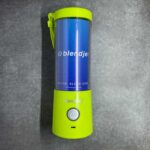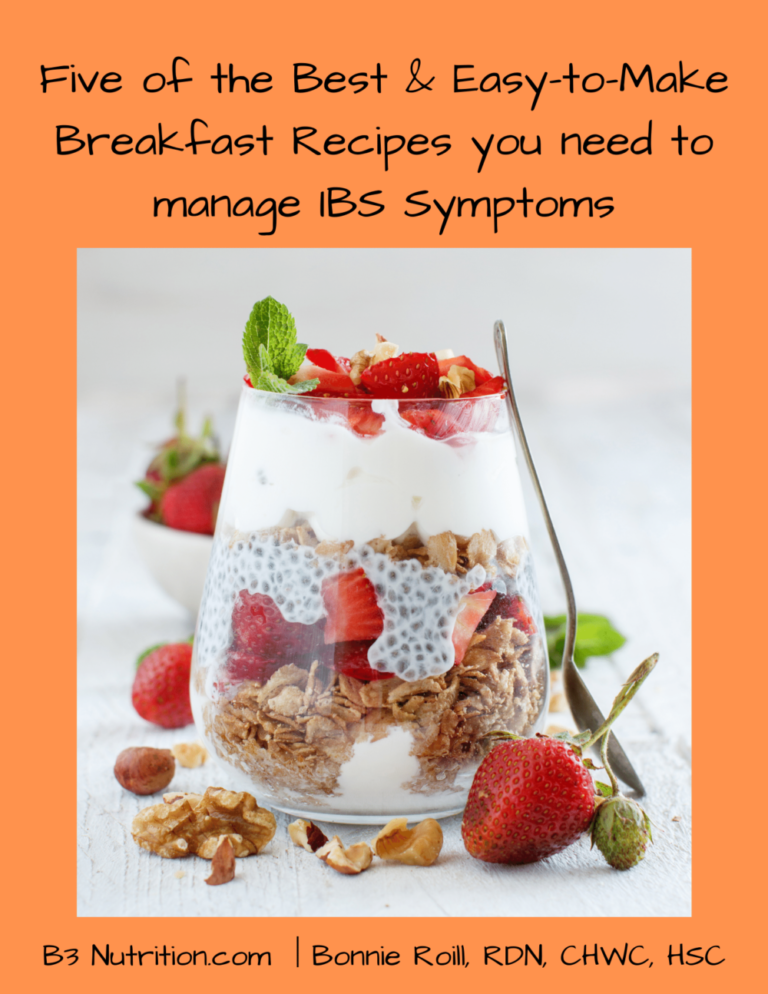Traveling with IBS

Traveling with IBS – how to go from fear to fun
Traveling with IBS brings its own set of uncertainties. It’s not uncommon to have IBS and food anxiety when it comes to leaving the comfort of your home, kitchen, and familiar safe foods.
Traveling with IBS has been my partner for over 40 years. Yet this hasn’t stopped me from visiting over 26 countries! I’ve put together my top 10 tips to share with you.
You can download my one-page PDF checklist “10 Tips for Traveling with IBS” at the end of the article. Here are the 10 tips for traveling with IBS.
Traveling with IBS checklist essentials:
1. Consider taking a digestive aide the day or so before you leave.
This preemptive strike can help to prepare the gut for the upcoming changes. This can be as simple as a cup or two of belly soothing tea such as Organic Belly Comfort by Traditional Medicinals.
2. Expect airport delays – always bring your own snacks.
Here are some of my favorite snacks to store in my purse or carry on:
- BelliWelli Bars – FODMAP certified, available on-line
- Aloha Organic Protein Bars – my favorite is PB chocolate chip!
- Fody Food Bars – blueberry almond FODMAP certified
- DIY granola mixture – be mindful of number of dried fruits as the fructose can increase symptoms of gas and bloating
- Fresh fruit and pecans – an orange is a good bet, smells good too!
*Watch out for possible restrictions on fruits and veggies at your destination. My love of Canadian apples did not go unnoticed by the agricultural inspectors when entering the US.
Due to the risk of spreading invasive plant pests, you may not be allowed to bring into another country. Solution? Eat it before you land.
When flying, note the TSA limitation for liquids and gels include food items like all drinks, yogurt, dressings, nut butters, maple syrup, hummus, cream cheeses and even more.
The majority of solid foods are allowed without limitation. Many times my carry on luggage is home to more food than clothes and I’ve never had TSA issues.
3. When you arrive at your destination, scope out the neighborhood for the nearest grocery store.
Depending on your length of stay, a box of Gluten-free cereal can come in handy for snacking or a quick breakfast. When you have a kitchenette/mini-fridge, stock up with perishable items like Greek yogurt, non-dairy yogurts, or lactose-free milk.
Adding my blendjet™ into my carry on has made it easy to mix a smoothie in my room before an early morning hike.
4. Use an app like Find me Gluten-Free. With this app you enter the city and find restaurants that promote gluten-free choices. A link to the restaurant website for viewing the menu is the next step.
To avoid disappointment, call the restaurant to verify they still offer a gluten-free menu. While on the phone, ask how they prepare their gluten-free meals.
Do they devote special area for gluten-free meal prep? Use different utensils or grill space for cooking foods?
5. Don’t leave home without your core digestive-health promoting products and/or supplements.
This list depends on your needs. Some of my favorites includes a mix of over-the-counter (OTC) products, herbal teas, and gut-specific supplements.
- Digestive enzymes help break down restaurant-portioned dinner meals to avoid abdominal bloating and discomfort.
- Motility agents like Motility Activator keeps food moving along the digestive tract
- Peppermint tea … avoid if you have GERD
- Pepto-Bismol – the pink stuff really can help the gut!
- Fennel tea … great for releasing trapped gas
- Ginger tea or crystalized ginger pieces … great for nausea
- Gas-X (OTC medication) containing simethicone to reduce gas build-up
- Chamomile tea – naturally relieves gut spasms
6. Personal Comforts
Items for your personal comforts go-to bag include underwear, toilet paper (TP), pads, wipes, etc. This is a must if you have a concern or are prone to accidents.
7. Plan to drink more water than usual.
Yes, it means more bathroom breaks but here’s a few reasons why you need to be more vigilant with your water intake when traveling:
- Plane-air is pressurized and this means increased dehydration
- Your excitement for your vacation can result in increased sweating
- Travel can make us more prone to constipation or a change in our daily elimination habits
8. Select magnesium-rich foods such as leafy greens, black beans, and bananas. Magnesium is a mineral needed for over 600 enzymatic processes in the human body.
Magnesium is also known for its muscle relaxing properties. Since the bowel is made up a smooth muscle, magnesium helps to keep things moving.
Magnesium can be the ‘push’ your colon needs for traveler’s constipation. Yes, traveler’s constipation is a real thing!
9. Don’t be a brat but try the BRAT eating plan!
Diarrhea or looser stools can curtail vacation plans. Even if your best efforts to avoid diarrhea fails having a plan can reduce downtime.
First, try a BRAT eating plan (bananas, rice, applesauce and toast) until you feel better. Slowly introduce easier-to-digest foods.
Second, hydration becomes top of mind to prevent dehydration and fatigue.
10. Never leave home without it- your favorite fiber supplement!
Taking your go-to fiber supplement to maintain regularity is a must. Travel interferes with regularity through unexpected schedules, reduced access to toilets, different foods, and interruption of your usual bathroom breaks.
In closing …
Knowing you have your favorite foods, supplements, teas, and even a hot water bottle to calm an unsettled gut, can reduce the anxiety around travel.
The most important tip! Don’t forget to have fun!
Let’s Recap
Creating a checklist helped ease my anxiety of traveling with IBS. To help you feel ready for your next trip, click here to download the PDF quick-version of these 10 tips.
Looking for easy-to-make and delicious to eat recipes that will make your gut happy? Look no further! Click on the image below to receive my FREE “Five of the Best & Easy-to-Make Breakfast Recipes you need to manage IBS Symptoms.”



